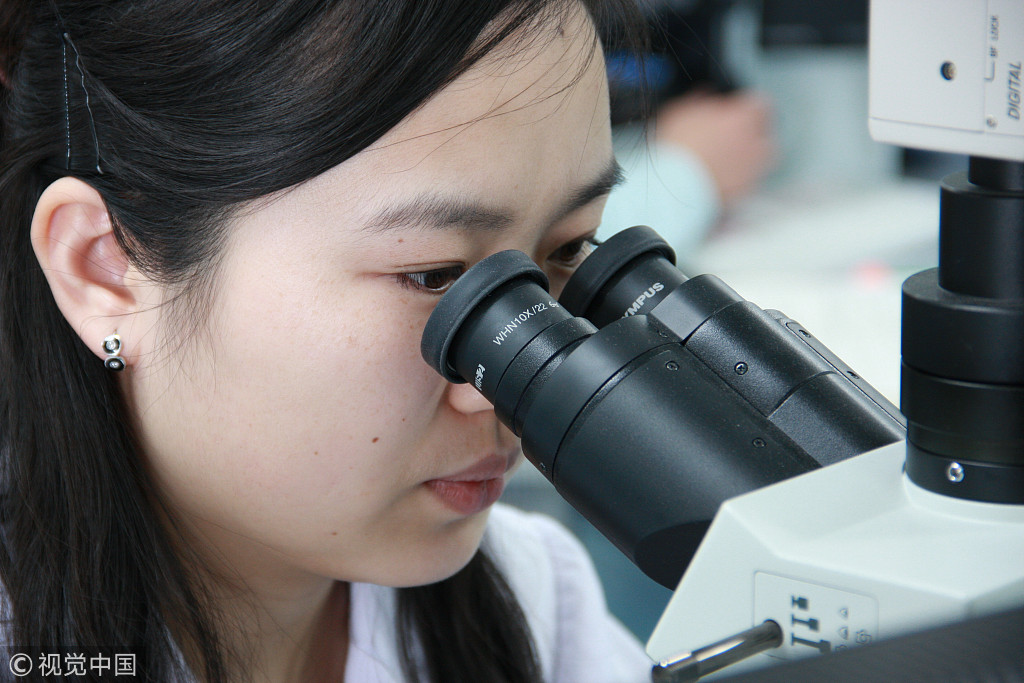'Malariotherapy' remains to be proved: experts
- By Li Jingrong
 0 Comment(s)
0 Comment(s) Print
Print E-mail China.org.cn, February 12, 2019
E-mail China.org.cn, February 12, 2019
Experts have responded to a recent report about plasmodium infection-based treatment, also known as "malariotherapy", for cancer patients, saying it is still too early to draw any conclusions, the Science and Technology Daily reported on Monday.

The issue was raised by a lecture given by Chen Xiaoping, a professor from Guangzhou Institute of Biomedicine and Health of the Chinese Academy of Sciences (CAS), on his research into plasmodium infection-based treatment for cancer patients in an open class that circulated widely on the internet during the Chinese New Year holiday.
He said: "Cancer cells secrete a series of signals that keep our immune system dormant, hence not working, while a plasmodium infection activates it."
According to Prof. Chen, after being injected into the body, the plasmodium itself doesn't actually attack cancer cells. Instead, it is "attacked" by the body's immune system in the normal way. Immune cells (such as NK cells and T cells), that had been "confused" by the cancer cells present in the body, then "become aware of" and attack them.
The professor's lecture evoked a huge public response. Some thought that a "single milliliter of plasmodium [in the blood] plus a controlled dose of artemisinin could cure a cancer patient", while there have been those claiming the "malariotherapy" would prove to be the "magic prescription" Louis Cha wrote in his martial arts stories – an approach to "attacking poison with poison" which is simple and effective.
Experts and scholars worried that public opinion might possibly be led astray by mass media reports of a "magic prescription" that they deemed full of exaggeration.
Zhong Nanshan, academician with the CAS, stressed the plasmodium infection-based treatment was still in the experimental stage and there were still many unknowns. "There remains insufficient evidence and cases to prove the effectiveness of this treatment, so it is too early to draw any conclusions," he said.
Zhong, also a cooperative partner with Prof. Chen Xiaoping's scientific research team, said that plasmodium infection can lead to periodic fever and other symptoms, so post-infection nursing and monitoring were absolutely necessary.
"With an infection by plasmodium, patients must be carefully monitored to prevent malaria transmission should they be bitten by mosquitoes," he said.
Yang Guanghua, professor from Shanghai Ocean University and chairman of Shanghai Telebio Biomedical Co., Ltd., said: "Presently, scientists all over the world are trying to find broad-spectrum antigens of tumors as vaccines to activate anti-cancer cells in the body, which I personally believe is promising"; however, he added that most vaccines were highly targeted while tumors could mutate to produce new drug-resistant cancer cells in the course of treatment.
Industrial insiders said any new anticancer treatment needs rigorous and systematic clinical research to prove its safety and effectiveness before it can be widely put into clinical practice. They believed screening of cancer cases would be beneficial to both scientists' research and patients' curative effect.
However, with many ordinary people optimistic about the prospects of plasmodium infection-based treatment, the experts agreed scientific research in this field still had a long way to go.






Go to Forum >>0 Comment(s)